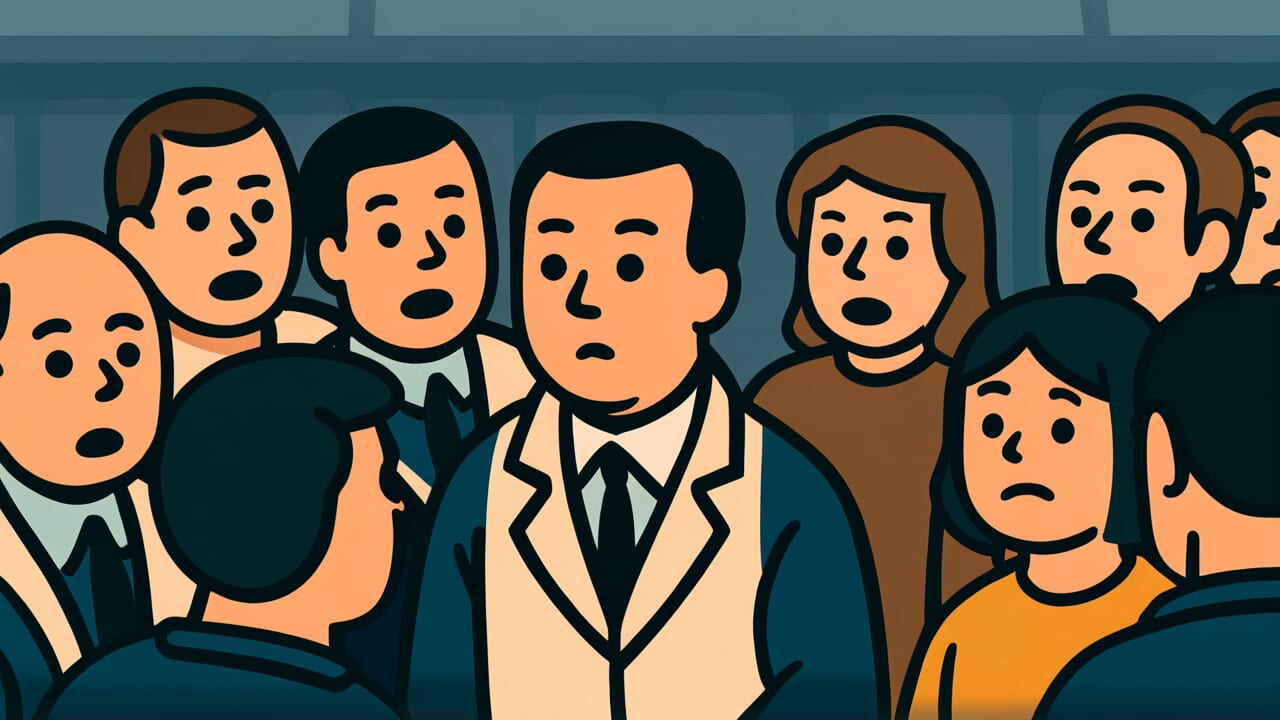How to Read “Bad people have many friends”
Akunin ni wa tomo ōshi
Meaning of “Bad people have many friends”
This proverb shows an ironic truth about relationships. People who do bad things often have many friends around them. But these friends gather for selfish reasons.
Bad people attract others who want to benefit from their actions. People with similar bad ideas naturally come together. They use each other, so it looks like they have many friends.
However, these aren’t real friendships. They only last as long as everyone benefits. When the benefits stop, the friendships end too.
This proverb teaches us an important lesson. Don’t judge someone just by how many friends they have. Someone might look popular and surrounded by people.
But you need to look at the quality of those relationships. Even today, this lesson matters. Having many social media followers doesn’t prove someone is a good person.
Origin and Etymology
Nobody knows exactly where this proverb came from. But it likely came from watching how people behave in Japanese society.
The word “akunin” means people who do morally wrong things. “Tomo ōshi” means having many friends. But it hints at something deeper about those friendships.
This proverb is interesting because it seems backwards. You’d think bad people would have fewer friends. But it says the opposite is true.
This surprising twist shows deep understanding of human relationships. It probably developed during the Edo period. Back then, business and personal interests were very mixed up in town life.
People learned to tell the difference between surface-level friendships and real ones. The proverb also works as a warning. Just because someone has many friends doesn’t mean you can trust them.
Usage Examples
- That politician proves “bad people have many friends”—he’s only surrounded by people who want money and power
- When I see someone with lots of shallow friendships, I remember “bad people have many friends”
Universal Wisdom
“Bad people have many friends” points to two timeless human traits. These are selfishness and the instinct to form groups.
Why do people gather around bad people? Because humans naturally look for benefits. Bad people often get benefits in ways that honest people won’t try.
Others want a share of those benefits, so they gather around. Also, people with similar values feel comfortable together. They can justify each other’s bad actions.
This proverb has lasted hundreds of years because it captures a basic truth. Looking busy and popular is different from having real trust. This insight never gets old.
The proverb also teaches about the value of being alone sometimes. People who try to do the right thing might feel lonely. But that loneliness isn’t shameful—it might be honorable.
Being surrounded by many people doesn’t guarantee happiness. A few truly trustworthy relationships are life’s real treasure. That’s the core message about human connections.
When AI Hears This
From a network theory view, bad people having many friends makes logical sense. Good people do “quality control” on friendships. They choose trustworthy people, keep promises, and meet expectations.
This makes each friendship expensive in time and effort. Building ten deep friendships requires investing sincerity in each person.
Bad people don’t worry about moral debts, so their connection costs are very low. They don’t feel guilty breaking promises. They expect betrayal as normal.
This lets them build 100 shallow relationships easily. Network science shows that nodes with many weak connections become “hubs.” These hubs get much better access to information and resources.
There’s an interesting selection mechanism at work. Bad people’s networks attract others who also want low-cost relationships. They use each other when needed without deep involvement.
The “untrustworthy people” that good people avoid are exactly who bad people connect with easily. This creates a huge network focused on quantity over quality. That’s why bad people win in friend “numbers.”
Lessons for Today
This proverb teaches modern people to value quality over quantity in relationships. Learn to see the difference.
In the social media age, we worry about friend and follower counts. But what really matters is having people who support you when things get tough.
You can have tons of surface-level connections. But relationships based only on mutual benefit disappear when situations change.
The proverb also teaches careful judgment of others. Someone might look popular, surrounded by many people. But you need to look at what’s inside those relationships.
To know if someone is trustworthy, don’t count their friends. Look at their values and how they live their life.
Think about yourself too. Are the people around you real friends? Or are you connected only through some benefit?
Building a few truly trustworthy relationships is the path to a rich life. That matters more than having hundreds of shallow connections.



Comments